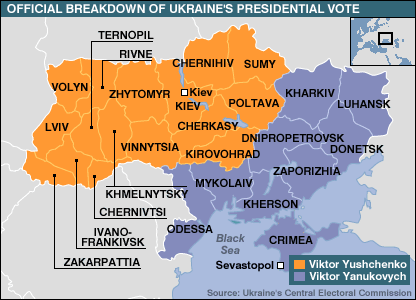 Israel removing Hamas in favor of Fatah is not a desirable action.
Israel removing Hamas in favor of Fatah is not a desirable action.Part of the problem is the talks have yet to reach an agreement. The issues where Hamas is resisting: the release of Israeli soldier Gilad Schalit and the end of arms smuggling into Gaza. On Israel's side the resistance is on the opening of the border. Hamas has demanded the release of 450 imprisoned militants in exchanged for Schalit, which Israel has flatly rejected instead calling for only 71 to be released. In spite of this according to the Egyptian intelligence chief, Omar Suleiman, it would only take the approval of Defense Minister Ehud Barak, however Barak himself has apparently signaled to American Congressional leadership that an operation into Gaza is being prepared.
Suleiman has already warned Hamas according to several reports that if the ceasefire agreement doesn't include the release of Schalit it will mean a major IDF incursion into the Gaza Strip. Even without the issue of Schalit and other matters, there remain voices concerned about the ceasefire saying it will only give them time to build up their forces and renew attacks, which some Hamas officials have said is the intent. Some have actually talked about the benefits of the occupation of Gaza as an argument for reinvasion. Pressure for an operation is coming from numerous Ministers and other government officials and so there's a possibilty an operation will be undertaken if Israel doesn't receive the necessary concession, especially on Schalit's release.
Lebanon may also reach a pressure point as talks on settling the dispute between them have come to a rough spot over Hezbollah's arms. On the issue of arms the government called for an agreement that Hezbollah would not use its arms against Lebanon and later discuss the arms issue with the next President, where both sides agree on Michel Sleiman (pictured left). However, Hezbollah has claimed the issue of arms is not on the table, while some in the ruling government have said the arms issue must be dealt with.
Not only is there the possibility of negotiations failing, there is also a possibility that radical Sunni groups will respond and try to attack Hezbollah in revenge for the attacks on Sunni militias. In addition there is the U.S. naval presence near Lebanon. Given reports that the U.S. had urged for Israel to take military action against Hezbollah in support of the government the possibility of Israeli intervention in any future unrest is high. Should negotations fail and Hezbollah actually attempt to topple the government an Israeli attack is highly likely. However, an attack in defense of Gaza may also raise the prospect of a Hezbollah attack on Israel.
The significance of this is the buildup of both Hamas and Hezbollah. Hamas has reportedly built up a force groups in Gaza. Their arsenal now includes advanced anti-tank and anti-air weapons including those used by Hezbollah in the 2006 Lebanon War. Not only that Hamas has extended its of some 20,000 troops trained in Lebanon and Iran with 4,000 other allied militia striking capacity with longer-range rockets and could soon have rockets capable of reaching Ashdod and
 Beersheba, altogether Hamas would likely have at least 600,000 civilians within range of rocket attack. On top of this Hamas has acquired Armored Personnel Carriers altogether making the Hamas forces a large capable military force in Gaza.
Beersheba, altogether Hamas would likely have at least 600,000 civilians within range of rocket attack. On top of this Hamas has acquired Armored Personnel Carriers altogether making the Hamas forces a large capable military force in Gaza.Hezbollah has built its force up even more expanding an arsenal of rockets capable of hitting Tel Aviv. In addition Hezbollah has built up its own naval force with some 35 Iranian speed boats. Though the size of Hezbollah's arsenal now is unknown it has likely tripled from what it had at the start of 2006 Lebanon War. Combined with the arsenal of Hamas assuming Hezbollah's rockets can only reach as far as Tel Aviv and Hamas only as far as Beersheba the two together would have at least 4.5 million civilians in range of their rockets, as depicted in the image on the right, or about 60% of the population of Israel.
Combined with this potential problem is the possibility of the U.S. launching an attack on Iran before the end of this year. It is possible an attack on Iran could be justified in the event of such a war with Israel against Hamas and Hezbollah. Part of this could involve an attack from Syria to retake the Golan Heights. Syria could also launch rocket and missile attacks capable of hitting the rest of Israel. An attack on Syria would naturally lead to an attack by Iran which could then justify an attack on Iran by the United States. Any attack on Iran will likely lead to counter-attacks throughout the Middle East and perhaps even attacks against American forces in Europe. A war against Hamas, Hezbollah, and Syria in conjunction with an attack on Iran by the United States would be the largest and broadest conflict in the Middle East since World War I surpassing the Arab-Israeli Wars in scope and impact.
As such there is little doubt that Israel is coming to a decisive crossroads as Olmert said. Should it choose to invade Gaza, it would possibly invite a calamitous conflict that would grow out of Israel's control and become a conflict of great powers sure to heighten tensions around the world and remove the limits set on the competing alliances of world powers. If instead Israel chooses a ceasefire with Hamas they will prevent a major conflict, but perhaps only for a short time.

